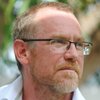The Transformative Tree - Pongamia Agroforestry Systems: Gender-Responsive Climate Finance, Creating Wealth, Jobs, Food & Fuel
Webinar
Never miss a recording again; click here subscribe to Z/Yen's YouTube account .
For over a thousand years the pongamia tree has been an integral part of agriculture in India, providing fodder for livestock, fertilizer and natural pesticides for crops, oil for lamps, power for industry and healing biocompounds used in traditional medicines. Pongamia trees possess all the features that plant breeders are seeking for a more sustainable agriculture in the most challenging of environments. They don't need inorganic fertilizers that cost more and more each year, and which degrade soils and pollute water. They remove carbon from the atmosphere and build healthy soils. They promote biodiversity, supporting bees and honey production, livestock grazing and fodder supply. They can grow in soils affected by salinity and pollution from mining. The challenge to commercialisation has always been that fewer than 1% of pongamia trees in the wild produce commercially viable yields. The work of the Phyla team over 25 years has been to identify and propagate the elite varieties to realise the full potential of this tree.
For mines and commercial farmers the benefits of pongamia agroforestry reafforestation are evident. Degraded land can be transformed into a productive assets producing much needed carbon-neutral fuel and food commodities. But these benefits can extend to communities and in particular women farmers, who do the bulk of cropping agriculture in Africa. In this talk we'll explain how with the right financing mechanisms pongamia agroforestry can develop to provide the impetus and backbone for a highly productive and climate change resilient agricultural system, that can create wealth, jobs, food and fuels within rural and peri-urban communities.
Speakers:
Rabih El Fadel has a unique understanding of sustainability, with over 25 years of experience in Low energy designs, Low-carbon emission initiatives, including energy buildings passive design, efficient systems, renewable energy, building management systems calculation methodology. Rabih’s 32 years’ experience encompasses formulated sustainability framework & development plans for masterplans, buildings project design and development, technical implementation and management Environmental Design, sustainability framework (Energy, Water, Waste, Internal environmental quality, renewable energy, solar passive design) for projects in Europe, Middle East, USA and Africa. Specialising in Low Energy and Sustainable Project Design & Development Rabih has vast experience on projects across a number of continents displaying ethical equality, sensitivity, and adaptability.
Dr Benjamin Warr is an internationally respected ecological economist, sustainability strategist and policy advisor, soil scientist land regeneration expert. His work for over 20 years at INSEAD, IIASA and in Africa focuses on the biophysical dimensions of economic activity to inform the development of sustainable business, society and environment. He is co-author of "The Economic Growth Engine: How energy and work drive material prosperity", with Professor Robert Ayres
Date
Wednesday, 08 March 2023
Time
12:00 - 12:45 GMT
Cost
Free
Share this event on social media:
Speaker(s):
-
 Rabih El Fadel
Rabih El Fadel
CEO
Phyla Earth
-
 Dr Benjamin Warr
Dr Benjamin Warr
Director
Phyla Earth
Chairman:
-
 Simon Mills
Simon Mills
Senior Associate
Z/Yen Group
